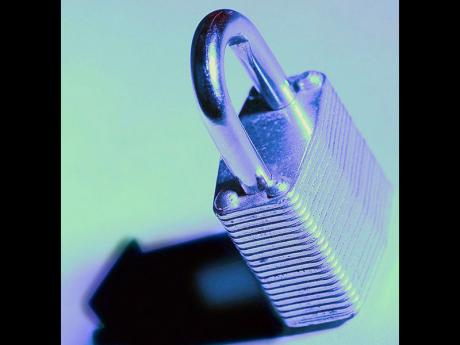BOJ has $64 billion on lockdown for deposit-takers
Avia Collinder, Business Reporter
As of October 23, commercial and merchant banks as well as building societies had J$64 billion of cash and other assets parked at the Bank of Jamaica (BOJ) as regulatory reserves.
All deposit-taking institutions (DTIs) overseen by the central bank are required to maintain a minimum level of liquid assets - that is, cash and/or qualifying assets easily convertible to cash - relative to prescribed liabilities.
Prescribed liabilities are defined as deposits, borrow-ings and related interest less exempted liabilities.
Exempted liabilities refer to funds received from sources such as the Development Bank of Jamaica, National Housing Trust, and EXIM Bank, the BOJ says.
The liquidity reserve ratio is 26 per cent of prescribed domestic liabilities and 20 per cent of foreign currency liabilities.
Deposit-takings are also statutorily required to maintain a portion of these liquid assets as cash holdings at the central bank. The cash reserve ratio is 12 per cent in the case of prescribed domestic liabilities and nine per cent for foreign currency liabilities.
Building societies are subject to a lower liquidity ratio of five per cent - one per cent of which must be held as cash - but will be required to meet the higher reserve ratios if they fail to satisfy special requirement of "holding assets that are residential mortgage related loans and mortgage backed securities issued by Jamaica Mortgage Bank and NHT, and which amount to a value of not less than 40 per cent of prescribed liabilities".
INTEREST ON US LIABILTIES
The BOJ says it pays interest on US dollar liabilities only, but declined to comment on the rate.
"The specific data requested is not statutorily authorised for publication," the central bank told Wednesday Business.
However: "Interest is paid on the foreign currency components of DTIs' cash reserves and is based on benchmark rates payable by the Federal Reserve, Bank of Canada and Bank of England depending on the currency held, less a small margin for service charge," BOJ said.
Reserve balances held for licensed DTIs are disclosed under 'demand liabilities' on the central bank's balance sheet. A year ago, those liabilities crested $60 billion.
The majority of the reserves belong to commercial banks. More recent disclosures by the central bank on base money indicators estimate that bank reserves alone topped $33 billion at the end of October.
Liquidity reserves held at the BOJ are exclusive of cash or assets held in accounts that satisfy capital reserve requirements.
DTIs maintain two types of capital accounts: the 'statutory reserve account' to which the financial institutions are mandated by law to make minimum transfers of annual profits; and a 'retained earnings reserve fund' which is a voluntary account to which DTIs may transfer additional amounts from realised earnings.
"Once transferred into this account, such funds are put beyond distribution and therefore qualify to be treated as part of capital base. As such, the balance in this account cannot be reduced without super-visory approval," the BOJ said.
Maurene Simms, division chief for financial institutions supervision at the BOJ, adds that both accounts are considered part of DTI assets and appear on their balance sheets.

